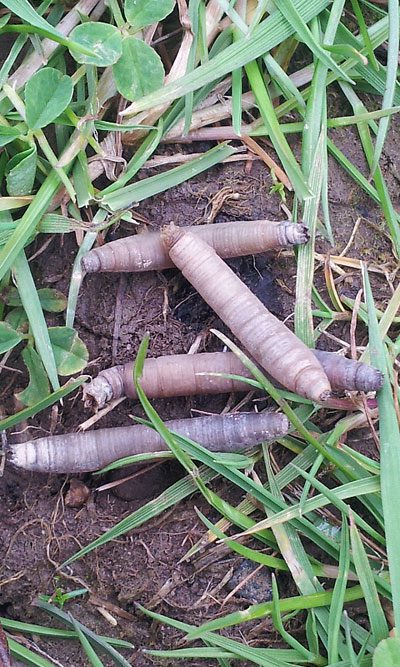The most recent survey by Scotland’s Rural College indicates that, after two years of record numbers, Leatherjacket densities have plummeted. However, while this reduces the need for any chemical controls, SRUC experts urge farmers with spring crops planted after grass to monitor growth carefully and to check their soils for signs of the grubs.
Leatherjacket is the name given to the grubs of the crane fly or “daddy-long-legs” that live just below the soil and from August through to the following June, eat the roots of grasses and other plants.
Professor Davy McCracken is the SRUC Ecologist who led the survey:
“The fact that it is such a low risk year makes it even more important to conduct an assessment of any fields where the growth of crops sown after grass may be of concern. This will confirm if there is a problem and what the culprit is. Chemical controls, which are costly and have an environmental impact, should only be used where necessary.”
The only permitted insecticide effective against Leatherjackets on agricultural land is chlorpyrifos. It is a chemical constantly under scrutiny by EU experts as they consider whether to permit its continued use beyond January 2018. This is something Professor McCracken believes farmers must take careful account of.
“If control measures are recommended for a particular field then whoever is applying them should remember the need to abide by “Stewardship” measures for chlorpyrifos applications. When applying chlorpyrifos for leatherjacket control only fit LERAP rated 3 star nozzles to the sprayer and establish a no-spray buffer zone within 20 metres of watercourses or within 1 metre of dry ditches. This advice is a key part of the Stewardship ‘Say NO to drift’ initiative which aims to support the future availability and use of insecticides containing chlorpyrifos.”
SRUC has been conducted since the mid 1970’s and offer a long term analysis of Leatherjacket populations. While they can put crops at risk Leatherjackets are an important food source for some farmland birds and these latest results suggest there will be less food for them this breeding season.
Assessment of leatherjacket infestations in individual fields can be undertaken as a chargeable service; details of costs are available from SAC Consulting’s local offices.
SRUC receives financial support from the Scottish Government towards the cost of the Leatherjacket survey and a proportion of the remaining costs were offset by the farmers involved having their fields sampled at a substantially discounted rate.
For further information contact Professor Davy McCracken, Future Farming Systems Research Group. Direct Telephone 01292 525 299, m 0771 200 1267, E-mail [email protected]
Leatherjacket Numbers Crash but Farmers Still Advised to Check Key Crops.






